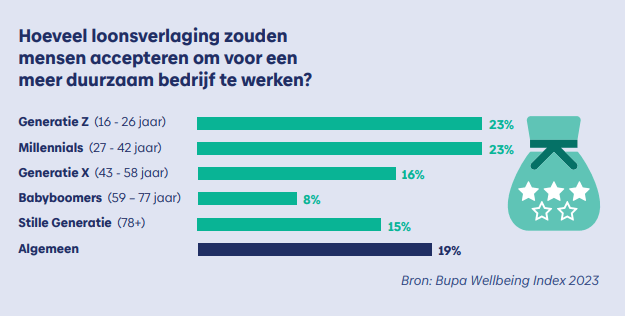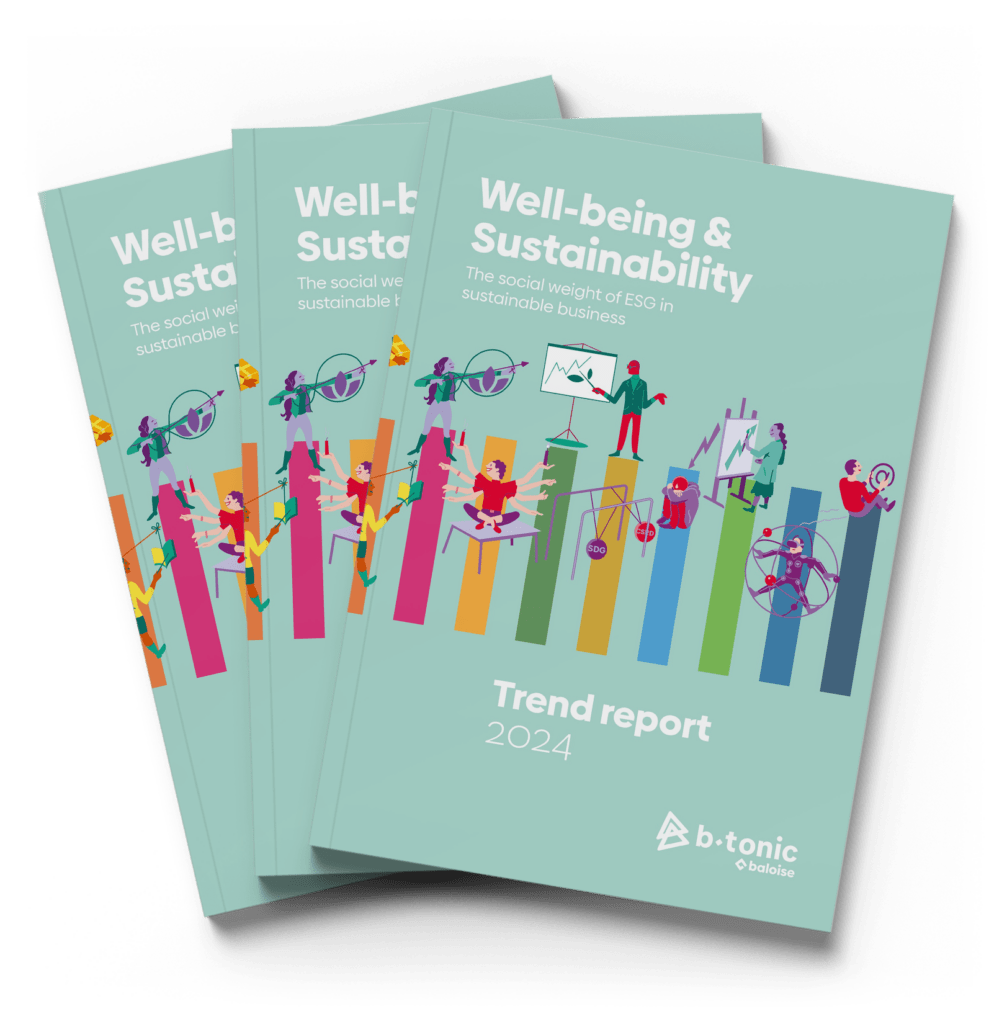How 53% of employers gain an edge by investing in sustainable employee well-being.
In a world where the boundaries between work and personal life are increasingly blurred, employers’ welfare policies play a crucial role in talent attraction and retention. With an impressive 53% of employers already taking steps to implement a welfare policy, and another 35% planning to develop one, it becomes clear that investing in sustainable employee well-being is not only a moral obligation but also a strategic move towards success.
Recent research, including a study by HP surveying over 15,000 knowledge workers in 12 countries, underscores the growing importance of workplace well-being. Remarkably, 83% of surveyed employees indicate willingness to accept a lower salary at an employer who prioritizes essential factors for workplace happiness, such as emotional intelligence, trust, and autonomy. The Bupa Wellbeing Index confirms this trend, reporting that employees are even willing to accept a salary reduction of 19% to work for an ethically responsible or environmentally friendly organization, a percentage that rises to 23% for Generation Z.


Stress-related absenteeism
In a time where employees increasingly look to their employers for a sense of well-being, research indicates that the willingness to exert extra effort has decreased since 2020. The perception of work has shifted, with nearly half of employers (46%) believing that work is now less central in the lives of their employees than before. At the same time, work pressure is a growing issue, with only a small percentage of both employers (23%) and employees (38%) considering the workload reasonable.
The crucial role of sustainable welfare policy
With the growing emphasis on welfare policy, employers recognize the importance of providing a healthy and supportive work environment. However, the increasing pressure and changes in the workplace have led to reluctance among employees. The high number of sick days due to stress underscores the need for more effective welfare initiatives. The future success of companies will largely depend on their ability to integrate a sustainable welfare policy that strikes a balance between employees’ expectations and work pressure. Sustainability in well-being doesn’t just mean promoting physical and mental health, but also creating a work environment that embraces ethical values and environmental awareness.
Investments in employee well-being are essential for building a future where companies thrive not only through their financial performance but also through their contribution to the well-being of their employees and society as a whole. The path to success is open for those employers who recognize the importance of sustainable well-being and actively take measures to create a positive and supportive work environment.
Read more about the impact of well-being policies in the workplace and how to implement them in your organization in our trend report.




